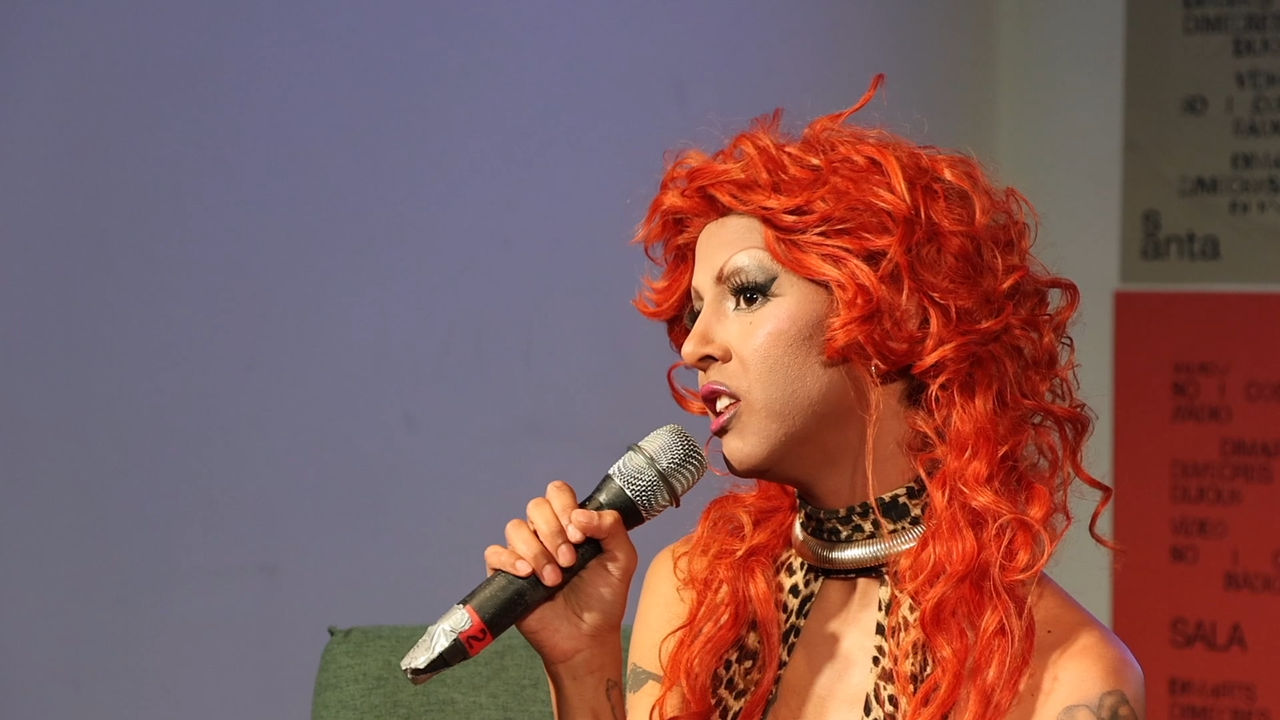1080 Collective: Interview with Selva González
One of the lines of research of Col·lectiu 1080 is conducting in-depth interviews with various individuals in relation to contemporary audiovisual practices. Specifically, with those who have participated in activities coordinated by the collective, such as the Tuesdays of Video or certain workshops held at Santa Mònica itself. As a research group focused on contemporary audiovisual work and its possibilities at the margins of the industry, we believe these interviews help to expand reflection and dialogue, leaving a small digital trace that may, perhaps, be useful for future research processes.
How do trans narratives, understood not only in their identity specificity but also in their worldview, challenge the status quo of current capitalism?
Our bodies are the failure of the colonial capitalist heteropatriarchal system. We work with error; we are the error, the disorder, the disobedience. In the words of the great Linn da Quebrada: "I failed, I am the failure of everything they expected me to be." Our stories are the heritage of that victory, and our works and productions are the confirmation of new possible worlds that challenge the norm in magical, disruptive, powerful ways.
Do you believe there is a trans aesthetic or audiovisual language?
I think it’s dangerous to talk about a trans aesthetic or language, because it means speaking in the very codes of our oppressors. Our duty as creators is always to question the limits that seek to contain our works within their boundaries. Our appearance should be considered an alternative, a possibility—not a style or form—because gender is their game, not ours. That’s why I reject the term trans cinema or LGBT cinema, because what I and my companions do is cinema, not trans cinema.
How does the trans perspective in audiovisual arts speak in relation to other arts like theater, music, performance, or comics?
I think cinema today is a challenging issue because it’s an industry in crisis and distortion. I find it interesting because the techniques and resources to make audiovisual work are increasingly democratized, and I see that potential as an open door for usurpation. Still, I don’t like to think of myself within the margins of one artistic form or industry. I’m a transdisciplinary artist, and cinema is a transdisciplinary art—but it’s not the only thing I do. To make audiovisual work you have to understand theater, music, performance, comics, because it’s fundamental to build upon the ruins of all the arts these days. It’s a matter of resourcefulness and environmental consciousness as well.
How do your ways of working collide with the demands of the traditional artistic-audiovisual production system?
This question is cruel because they shouldn’t collide—the world should ask me how I want to work and allow me to do it. I’ve spent years managing political spaces for artistic creation, and of course I’ve made mistakes, I’ve fallen, I’ve betrayed my own convictions in favor of an imposed, taught, shared, generalized production system I’ve had to conform to in order to finance and pay for the work of my friends and companions. Systems demand complicity, and that’s always a cruel thing.
Have you had any dreams recently that you’d like to share? Any dream that opened up the possibility of glimpsing a world, or something or someone?
These days, my dreams and nightmares are about honor and justice. And for that, you don’t need to read from me. But if you still wonder, ask any travesti close to your heart what honor and justice mean to us.

Selva González is a producer, cultural manager, and LGTBIQA+ activist living between Marseille (France) and Iquique (Chile). She is co-founder and executive producer of Estudio NANAI, focused on immersive virtual reality experiences created interdisciplinarily in sorority by artists and creative technicians.